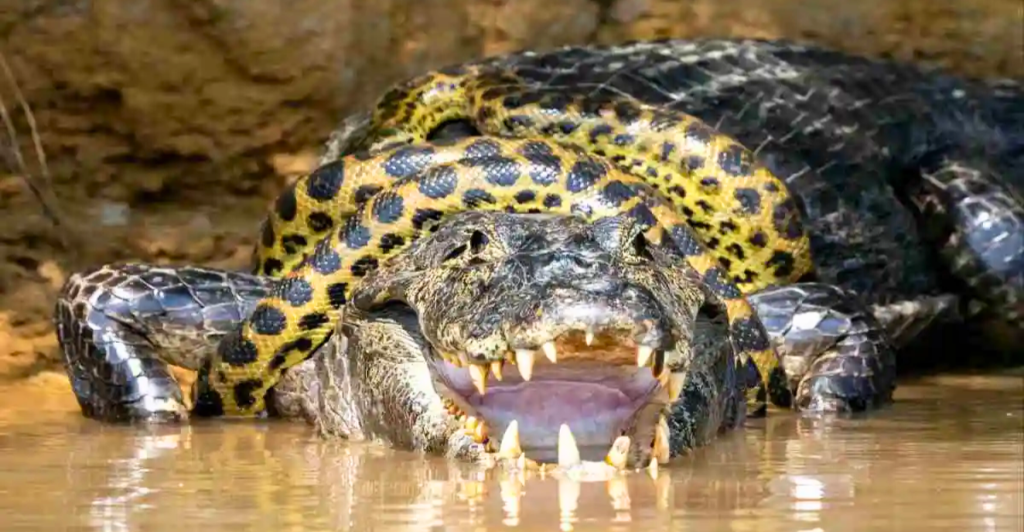
The python-alligator saga is an example of what can happen when non-native species are released into an environment. It also points to the need for better control of exotic pets and the necessity for more territory-protecting measures.
The Invasion Begins
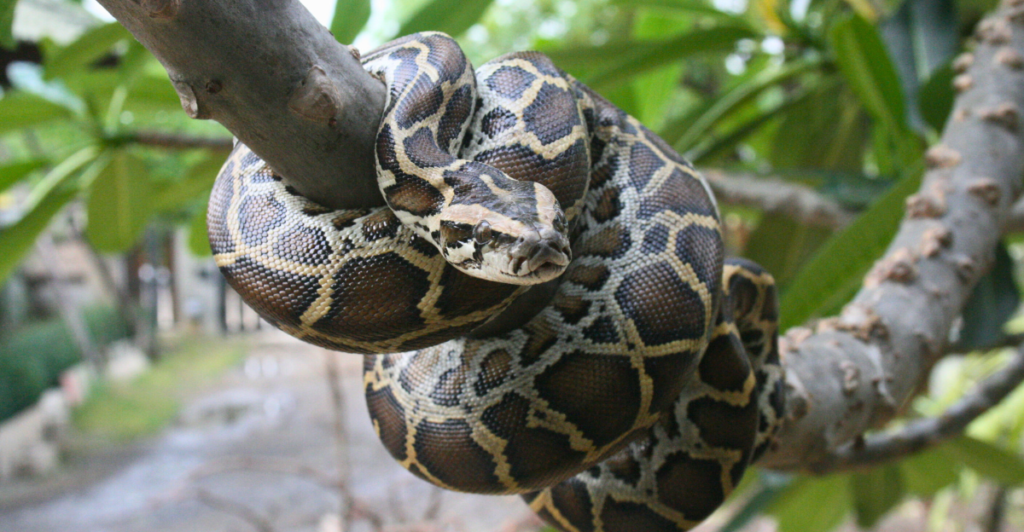
Burmese python are native to Southeast Asia and made their way to the Everglades through the exotic pet trade. It’s presumed that some were deliberately released, and the rest escaped. The python’s population has supposedly grown to tens of thousands of snakes in southern Florida.
Apex Predators Collide

Both alligators and pythons are at the top of the food chain. The arrival of the pythons means that the region’s alligators now have a new rival. Alligators have been the region’s predominant predators for a long time, so the arrival of burmese python has sparked direct confrontation and a power struggle.
Effects of the Python Invasion on Mammals

Indigenous mammals have been affected by the high number of pythons. There has been a drastic decline in the population of raccoons, opossums and bobcats with some of them losing more than 90 percent of their populations, studies have revealed.
How Alligators Fight Back

Alligators, being stochastic feeders, have been seen feeding on juvenile pythons. But considering that pythons are large, they are great opponents and can kill alligators.
Ecological Consequences

The python’s predation has led to a disruption of the food web in the Everglades. The decrease in the number of small mammals affects seed spread and vegetation, which subsequently affects the environment and other wildlife.
Attempts of Human Intervention
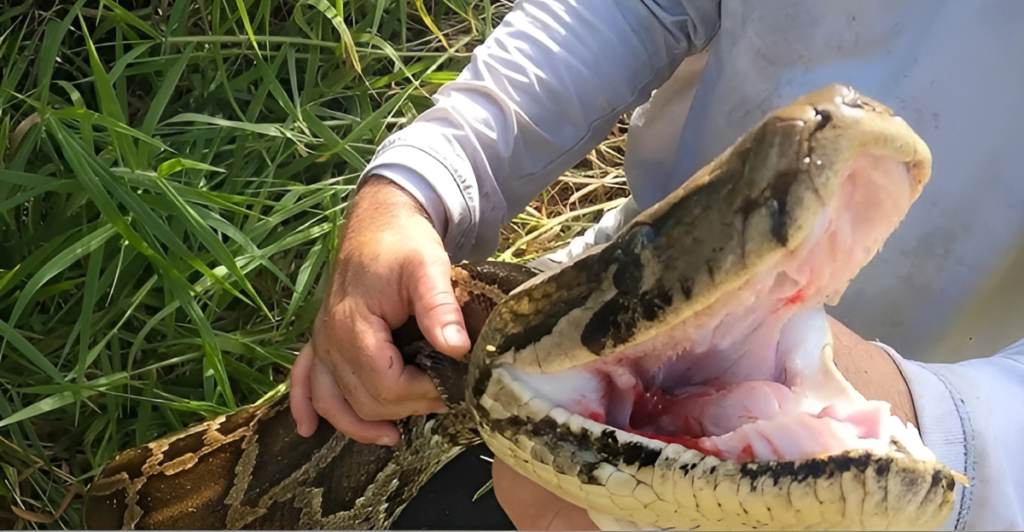
The infestation of the python has led the state government of Florida to take drastic actions, some of which include the annual Python Challenge, where hunters are encouraged to find and kill the snakes. However, seeing as pythons are extremely difficult to find, eradication is not easy.
Novel Control Strategies
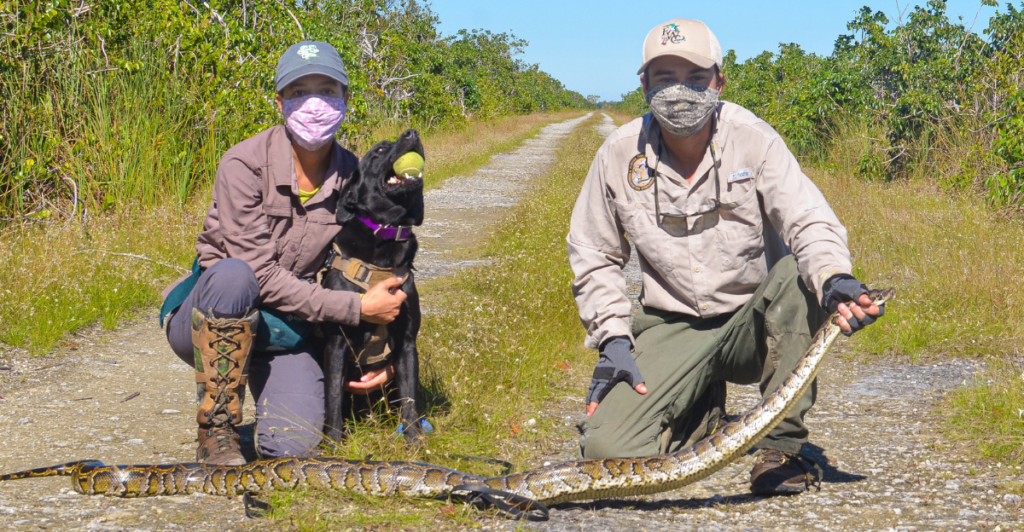
Researchers are trying to find ways to regulate python populations. For instance, they have used detection dogs, radio telemetry and even genetic biocontrol. Campaign programs in the public also help to keep the snakes from propagating.
The Role of Citizen Scientists

Citizen scientists report sightings and help with capture and removal programs. Community engagement can be highly effective when it comes to conservation efforts.
The Alligator’s Resilience

Regardless of the challenges, alligators are still finding ways to adapt. They are symbolic of the dynamism of ecosystems and the struggle for survival in the face of shifting environments.
Lessons Learned
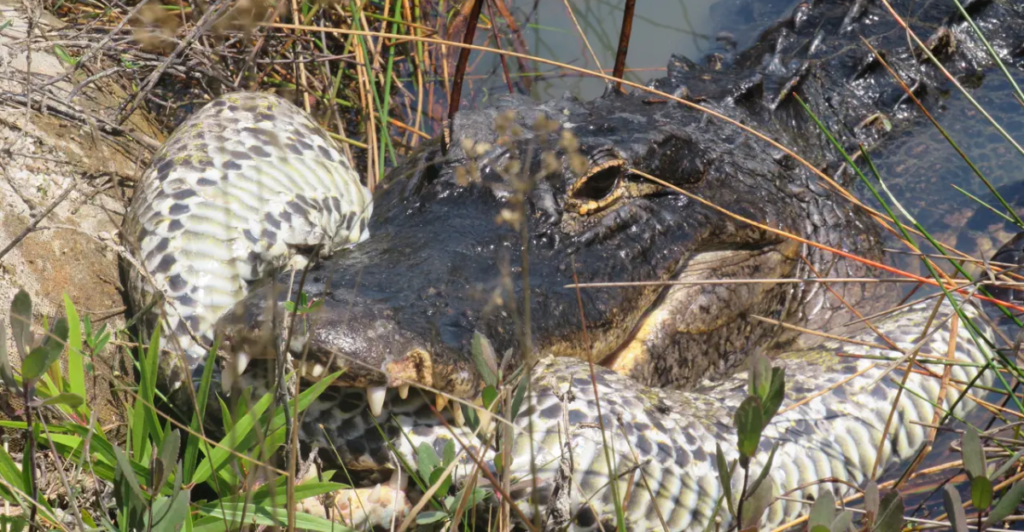
The python-alligator saga is an example of what can happen when non-native species are released into an environment. It also points to the need for better control of exotic pets and the necessity for more territory-protecting measures.
The Future

It’s essential that researchers persist, that systems are better managed, and that people get involved. Although it may be impossible to eradicate burmese pythons completely, the effects can still be minimized and their spread can be prevented.
A Wake Up Call From Nature
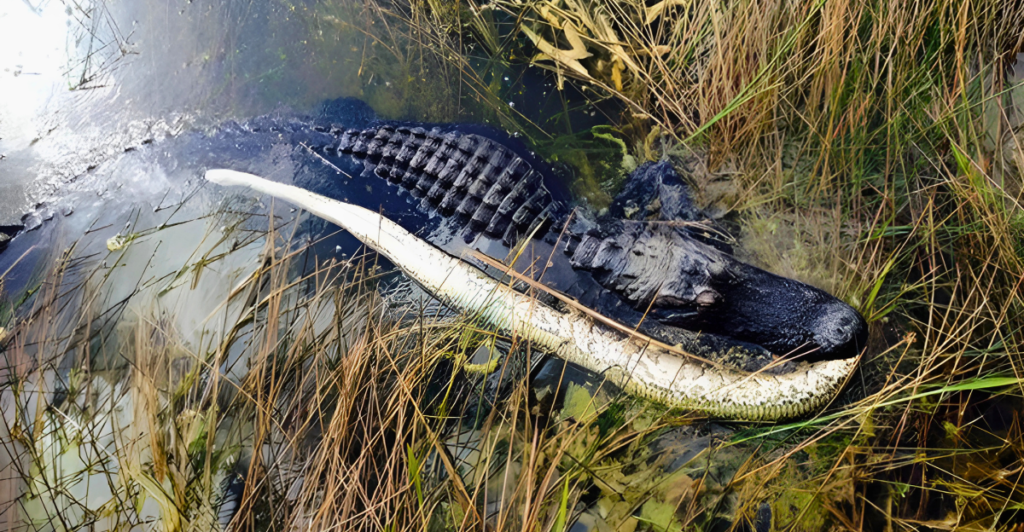
The Everglades’ predator conflict is a testimony to the fact that nature’s balance can easily tip. It demands sustained efforts to restore order so this unique environment is preserved for future generations.
Explore more of our trending stories and hit Follow to keep them coming to your feed!

Don’t miss out on more stories like this! Hit the Follow button at the top of this article to stay updated with the latest news. Share your thoughts in the comments—we’d love to hear from you!







